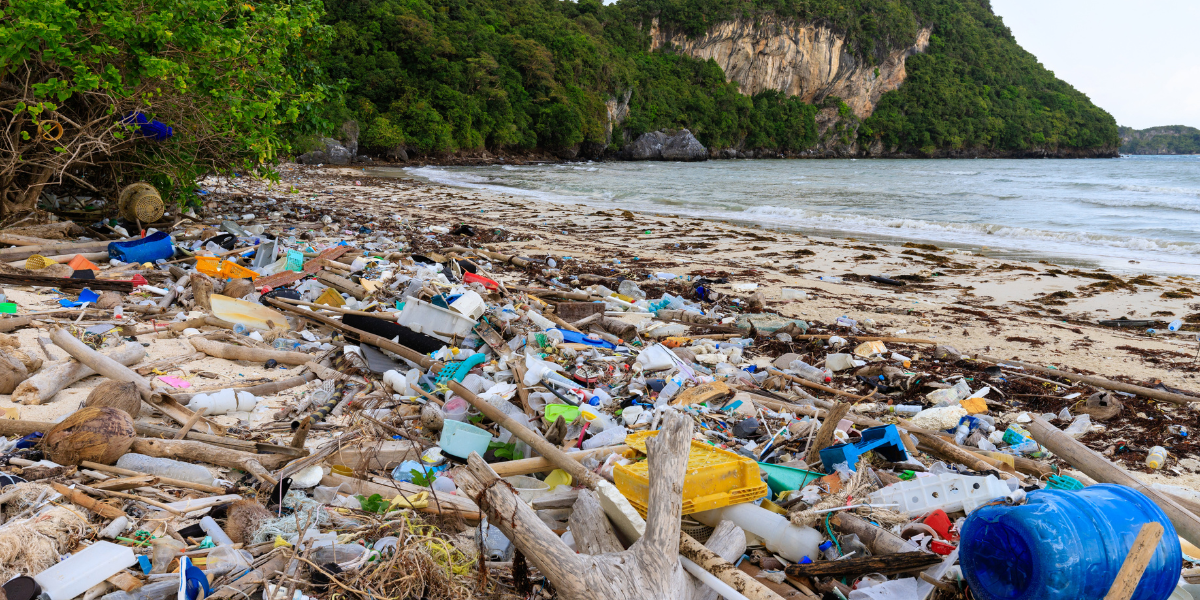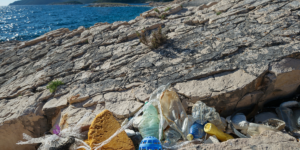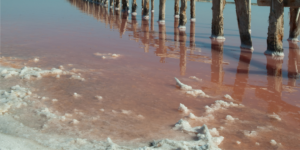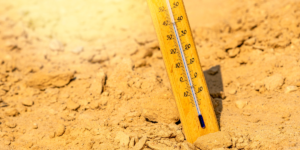When you think of the ocean, you might picture a vast and pristine expanse of water teeming with life. However, the reality is that the world’s oceans are facing significant threats from pollution. Pollution comes in many forms, including oil spills, chemical waste, and plastic debris.
These pollutants can have severe consequences for marine ecology, disrupting entire ecosystems and threatening the survival of countless species. As you read on, you’ll learn about the different types of pollution that affect marine life and how they impact ocean health.
You’ll also discover some of the ways scientists and environmentalists are working to mitigate these effects through research, education campaigns, and policy changes. Whether you’re an avid beachgoer or simply curious about our planet’s delicate balance between land and sea, understanding how pollution affects marine ecology is crucial for protecting our oceans’ future.
Key Takeaways
- Pollution in the oceans includes oil spills, chemical waste, and plastic debris which disrupt ecosystems, threaten species, and harm marine animals.
- Plastic waste in particular harms countless species and compromises ocean health, while overfishing and habitat destruction reduce fish populations and leave organisms without homes.
- Government policies and environmental organizations play a critical role in regulating waste and promoting sustainable practices, with potential solutions including natural/non-toxic products, hazardous waste recycling, and reusable containers.
- Mitigating pollution effects requires individual and collective action, research and development, and policy and regulation, with actions such as reducing single-use plastics, proper hazardous waste disposal, supporting sustainable fishing, and community engagement.
The Impact of Pollution on Marine Life
You might not realize it, but when you toss that plastic bottle into the ocean, you’re harming marine life and disrupting the delicate balance of nature – as the saying goes, ‘we don’t inherit the earth from our ancestors, we borrow it from our children.’
Pollution has a significant impact on marine life. The presence of plastics, oil spills, chemicals, and other pollutants in the water can cause harm to marine animals such as fish, birds, and mammals. These materials often end up in their stomachs or get tangled around their bodies causing them to suffocate or starve to death.
Furthermore, pollution also contributes to overfishing and habitat destruction. Overfishing reduces fish populations which leads to imbalances in ecosystems. It also affects food chains since some predators rely on certain types of prey for survival.
Habitat destruction caused by pollution destroys natural habitats for marine organisms leaving them without homes or shelter. This makes them vulnerable to predation or exposes them to harmful substances that can affect their health and reproduction rates.
Therefore reducing pollution is crucial for maintaining healthy marine ecosystems and ensuring they remain sustainable for generations to come.
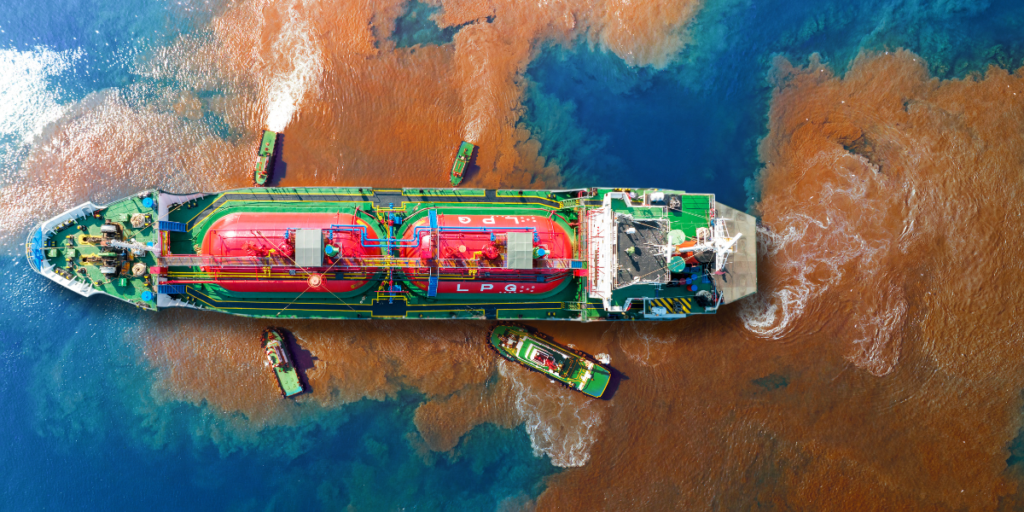
Oil Spills and their Consequences
When oil spills occur, they create lasting damage to the ocean’s inhabitants and their habitats. The effects of oil on marine life are extensive and long-lasting. Here are three reasons why:
- Oil coats the fur or feathers of marine mammals and birds, reducing their ability to regulate body temperature and making them vulnerable to hypothermia or hyperthermia.
- Oil can also clog fish gills, preventing them from breathing properly and ultimately leading to death.
- Oil spills can contaminate food sources for marine animals, causing reproductive issues, birth defects, and even death.
Clean up methods for oil spills involve physical removal of the oil through skimming or using absorbent materials such as booms or pads. However, these methods can be costly and time-consuming.
The economic impacts of an oil spill are significant as well – tourism may decline in affected areas, fishing industries may suffer due to contaminated waters, and cleanup efforts can cost billions of dollars.
Prevention is key in avoiding the devastating consequences of an oil spill on marine ecology.
Chemical Waste and its Effects
As you delve into the subtopic of Chemical Waste and its Effects, you’ll discover that it’s a complex issue with far-reaching consequences.
At its core are the toxicity and harmful effects on organisms that result from exposure to chemical waste.
Understanding the sources and regulation of this waste is crucial in developing effective solutions and alternatives that can mitigate these negative impacts on our environment.
Toxicity and Harmful Effects on Organisms
The harmful effects of pollution on marine organisms are due to the toxicity of pollutants. When these pollutants enter the marine environment, they can accumulate in the tissues of various organisms and cause significant harm.
Here are some examples of how toxicity affects marine ecology:
- Impaired reproduction: Some pollutants can interfere with the reproductive systems of marine animals, leading to decreased fertility rates or even sterility.
- Changes in behavior: Exposure to certain chemicals can alter the behavior patterns of marine organisms, making them more vulnerable to predators or less effective at finding food.
- Reduced growth rates: Polluted waters can contain high levels of contaminants that stunt growth and development in young animals.
- Disruption of food webs: Toxic substances can also affect the balance of predator-prey relationships in a given ecosystem by killing off important species or altering their behavior.
These effects can lead to ecological imbalance, which has far-reaching consequences for entire ecosystems and ultimately impacts human well-being as well.
It’s essential that we take steps to reduce our pollution output and protect our oceans from further harm.
Sources and Regulation of Chemical Waste
You can’t ignore the fact that your chemical waste is like a ticking time bomb, ready to explode and wreak havoc on our precious oceans.
Industrial processes and agricultural practices are two of the main sources of chemical waste that pollute marine ecosystems. Chemicals such as pesticides, fertilizers, and industrial chemicals seep into water bodies through runoffs and other means, causing significant damage to aquatic life.
However, government policies and environmental organizations play a crucial role in regulating chemical waste. They implement regulations for industries to reduce their pollution levels by enforcing stricter laws on toxic emissions, implementing fines for non-compliance, and promoting sustainable practices.
Environmental organizations also work towards protecting marine life by creating awareness about pollution’s harmful effects on aquatic ecosystems and advocating for conservation efforts.
It is essential to regulate the sources of chemical waste effectively to ensure the long-term health of our oceans’ ecology.
Alternatives and Solutions
Looking for ways to reduce your chemical waste? There are many eco-friendly initiatives and sustainable practices that can help mitigate the negative impact of pollution on marine ecology.
One solution is to switch to natural and non-toxic cleaning products, which are free from harmful chemicals such as bleach, ammonia, and phosphates. These products not only reduce your chemical footprint but also prevent toxic runoff from entering water bodies.
Another alternative is to recycle hazardous waste materials such as batteries, electronics, and light bulbs instead of throwing them in the trash bin. Recycling helps to minimize the amount of toxic substances that end up in landfills or oceans, reducing the risk of contamination.
Additionally, you can opt for reusable containers instead of single-use plastics when packing food or beverages. This reduces the amount of plastic pollution in our oceans while also conserving resources used in production and transportation.
By adopting these sustainable practices, we can make a significant contribution towards protecting marine ecosystems from pollution damage.
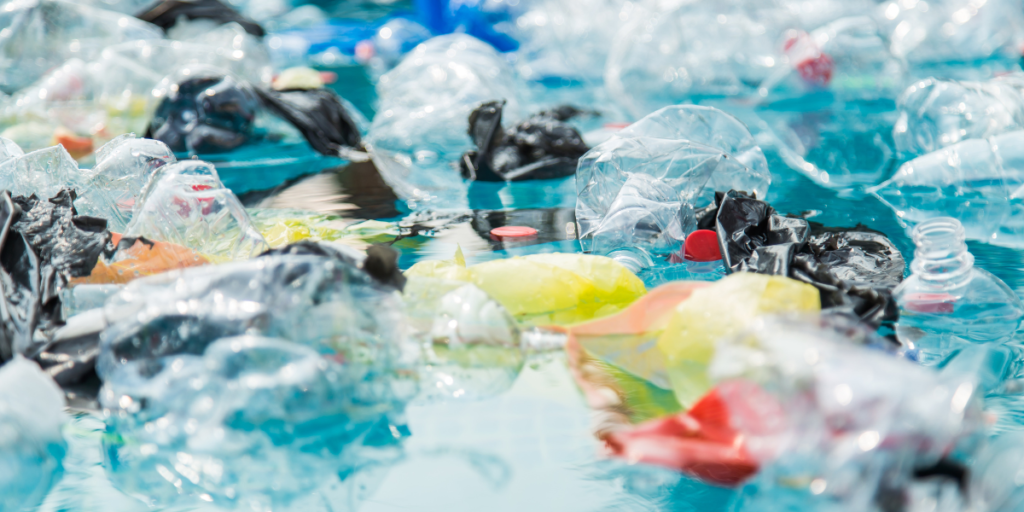
Plastic Debris and its Impact
Plastic debris wreaks havoc on marine ecosystems, causing harm to countless species and compromising the health of our oceans. The impact of plastic debris on marine ecology is undeniable, as it affects every level of the food chain.
Here are some examples:
- Plastic waste can entangle and suffocate animals like sea turtles, birds, and whales.
- When small pieces of plastic break down in the water, they can be mistaken for food by fish and other marine creatures. This not only leads to an imbalance in their diets but also causes physical harm as these plastics cannot be digested.
- Plastic pollution introduces harmful chemicals into the ocean environment that can affect reproductive systems, growth rates, and even cause mutations in various marine organisms.
There are solutions for plastic debris that we can implement to reduce its impact on our oceans. Some ideas include reducing single-use plastics, improving waste management systems near coastlines, and investing in research for new biodegradable materials.
As individuals, we can also make a difference by choosing reusable items such as water bottles or shopping bags instead of disposable ones. By working together towards a cleaner future for our oceans, we can help protect the delicate balance of marine ecology.
Mitigating the Effects of Pollution on Marine Ecology
Now that you’ve learned about the impact of pollution on marine ecology, it’s time to discuss how we can mitigate these effects.
There are three key areas to focus on: individual and community actions, government policies and international agreements, and scientific research and innovation.
By taking action in these areas, we can work towards a cleaner and healthier ocean for all species.
Individual and Community Actions
You can make a difference in the health of the ocean by reducing your carbon footprint, recycling properly, and supporting eco-friendly businesses. Here are some specific actions you can take to help mitigate the effects of pollution on marine ecology:
- Reduce your use of single-use plastics: Plastic waste is one of the biggest threats to marine life. By using reusable bags, bottles, and containers instead of disposable ones, you can significantly reduce the amount of plastic that ends up in our oceans.
- Properly dispose of hazardous materials: Many household cleaning products and chemicals contain harmful toxins that can harm marine life if not disposed of correctly. Make sure these materials are properly recycled or taken to a hazardous waste disposal site.
- Support sustainable fishing practices: Overfishing and destructive fishing practices have led to significant declines in fish populations around the world. By choosing sustainably caught seafood options, you can help protect these important species.
- Get involved in local cleanup efforts: Community engagement is critical to protecting our oceans from pollution. Participate in beach cleanups or other local efforts to remove trash from waterways.
By taking these actions and promoting community engagement through educational campaigns, we can all play a role in protecting our oceans from the harmful effects of pollution. It’s up to each individual to do their part and make a difference for future generations.
Government Policies and International Agreements
Governments and international organizations have a critical role to play in implementing policies and agreements that protect the health of our oceans. Environmental diplomacy is crucial as it fosters cooperation among nations to address the issue of marine pollution.
For instance, the United Nations Convention on the Law of the Sea (UNCLOS) is an international agreement that provides a framework for ocean governance, including measures to regulate marine pollution.
International cooperation is also essential in addressing transboundary pollution. The Marine Environment Protection Committee (MEPC), established by the International Maritime Organization (IMO), develops and implements regulations aimed at reducing shipping emissions and preventing marine littering. These regulations are crucial in mitigating marine pollution as shipping activities account for a significant percentage of global emissions.
Governments must continue to support these policies and agreements through adequate funding, enforcement, and monitoring mechanisms to ensure their effectiveness in protecting our oceans’ ecological integrity.
Scientific Research and Innovation
Advancements in science and technology are transforming our understanding of the ocean and providing innovative solutions to protect its delicate ecosystems. Innovation strategies have paved the way for developments such as autonomous underwater vehicles, which can collect data on marine life without disturbing their habitats.
These vehicles provide researchers with a means to explore areas that were previously inaccessible, allowing them to gain a deeper understanding of the effects of pollution on marine ecology. Technology advancements have also led to the creation of new materials that are less harmful to the environment and can be used in place of traditional materials that contribute to pollution.
For example, biodegradable plastics are being developed as an alternative to conventional plastics that often end up in oceans and harm marine life. Furthermore, innovative technologies such as nanotechnology are being explored for their potential use in cleaning up oil spills and other forms of pollution.
As scientific research continues to drive innovation, we can hope for more effective solutions that will not only mitigate the negative impact of pollution but also preserve our oceans for future generations.
Frequently Asked Questions
How does pollution affect the economy of coastal communities?
Pollution can have a significant economic impact on coastal communities, particularly those reliant on tourism development. Pollution can harm marine ecosystems, leading to declines in fish populations and degraded habitats that can deter tourists and damage local businesses.
What are the long-term effects of pollution on marine ecosystems?
Your actions have caused a ripple effect, leading to biodiversity loss and ecosystem degradation. Pollution has long-term effects on marine ecosystems as it disrupts the delicate balance of life beneath the surface.
How can individuals reduce their contribution to marine pollution?
Reduce your contribution to marine pollution by adopting an eco-friendly lifestyle and making sustainable seafood choices. This helps preserve marine ecosystems, which are negatively impacted by pollution from human activities.
What are some solutions to preventing oil spills from occurring?
Preventive measures such as regular maintenance of vessels, proper training of crew members, and use of advanced technologies can greatly reduce the risk of oil spills. This is crucial in minimizing the environmental impact on marine ecology.
What is the role of government in regulating and reducing pollution in marine environments?
Before discussing government accountability and corporate responsibility in reducing marine pollution, remember that actions speak louder than words. Governments play a crucial role in regulating industries to prevent harm to the environment and its inhabitants.

